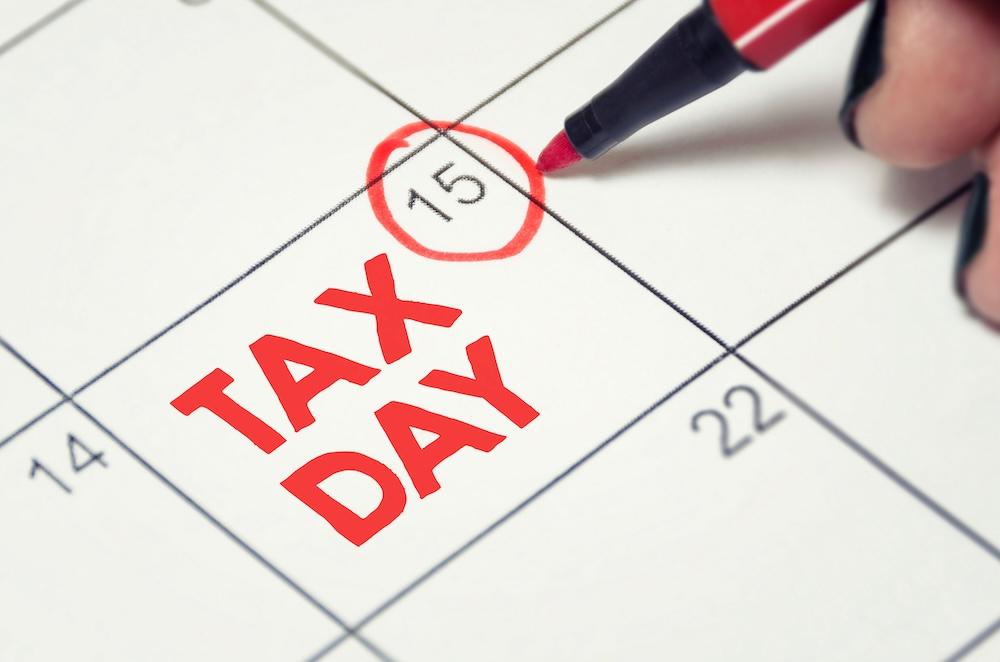Why It’s Better to Overpay on Taxes Than Not Pay at All
Tax season is upon us, and it can be stressful with so many deadlines, calculations, and changes in financial situations, it’s easy to fall behind – especially without a tax advisor by your side. However, one of the biggest mistakes taxpayers make is underpaying or missing their tax payments altogether. When it comes to taxes, it’s always better to overpay than to underpay or not pay at all.

Make Sure You’ve Paid Your Estimated Taxes
Many taxpayers, especially those who are self-employed or have additional income outside of a traditional W-2 job, are required to make quarterly estimated tax payments. These payments help cover your tax liability throughout the year and prevent a large tax bill at the end of the filing season.
Failing to make estimated tax payments can lead to penalties and interest from the IRS. Even if your income fluctuates, it’s crucial to pay at least the minimum estimated amount required based on your previous year’s income. If you’re unsure of how much to pay, consult with a tax professional to avoid unnecessary penalties.
Don’t Wait Until April 15th to Pay
Many taxpayers make the mistake of waiting until the last minute to settle their tax bill. The problem with this approach is that if you owe more than expected, you might not have enough funds set aside to cover it. Additionally, if you miss the deadline, you could be hit with failure-to-pay penalties and interest charges that add up quickly.

Even if you’re not sure of your exact tax liability, making estimated payments throughout the year is a smart financial move. If there’s a chance you owe more than expected, paying early ensures that you don’t get caught off guard when April 15th rolls around.
Changes in Your Financial Situation Can Affect Your Taxes
Your tax situation can change drastically from year to year. If you don’t adjust your withholdings or estimated payments accordingly, you could end up owing more than expected. Some of the biggest changes that impact taxes include:
- Job changes – A new job may have different withholding amounts than your previous employer.
- Buying or selling a home – This can impact deductions, capital gains, and taxable income.
- Marriage or divorce – Your filing status changes, which affects your tax liability.
- Taking distributions from retirement accounts – Early withdrawals may come with penalties and additional tax liability.
Avoid Interest and Penalties
The IRS charges interest and penalties on unpaid taxes, which means that if you don’t pay what you owe on time, you could end up paying much more than you originally owed. The IRS failure-to-pay penalty can be as high as 25% of your unpaid taxes, plus interest that accrues daily.
On the other hand, if you overpay your taxes, the IRS will simply refund the excess amount. This makes overpaying a much safer option compared to underpaying and risking steep penalties.
The Reality: Most Taxpayers Owed in 2024
In 2024, 4 out of 5 of our clients ended up owing taxes, proving that many taxpayers are not withholding enough or making adequate estimated payments. This trend highlights the importance of staying proactive with tax planning to avoid surprises when tax season arrives.
Stay on Top of Your Taxes With Woodlands Tax Advisors
The best way to ensure you’re not underpaying (or overpaying too much) is to work with a tax professional who can help you calculate your estimated taxes and make the necessary adjustments. At Woodlands Tax Advisors, we help individuals and businesses navigate the complexities of tax season, ensuring they stay compliant and avoid costly penalties.
If you’re unsure whether you’ve paid enough in taxes this year or want to create a plan to avoid owing next year, contact us today for a consultation.
Don’t wait — stay ahead of your taxes to save money and reduce stress!
During the next few weeks, Dana Jensen and the Woodlands Tax Advisors team have limited appointments available. If you are in need of a tax consultation, please reach out to our office now by visiting our website, or call our office now at 281-214-2255.
As of March 15, 2025, one month before the tax-filing deadline, we have the capacity for 20-25 more tax filing clients. If you are seeking tax advisory services, we consulting packages to assist you.
Please note: We do not automatically file tax extensions without consultation first with our clients. If you know you will be filing a tax extension, call our office now, and we will be happy to help.